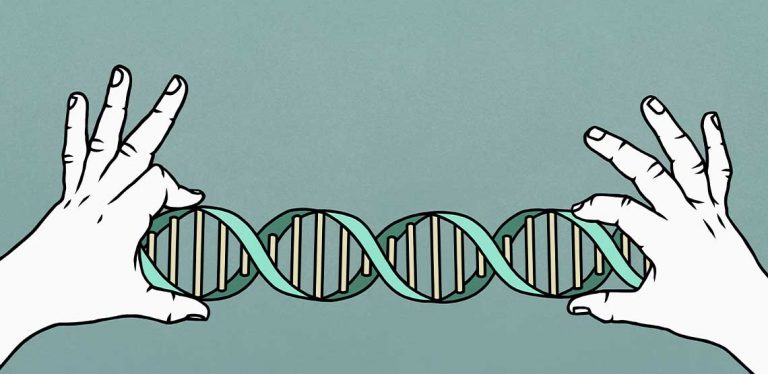Illuminate the Shadows
Depression is a terrible thing. Rearing its head like a sad little monster, depression isn’t something you can control with medicine alone, or even at all. To help with that, consider Auvelity, a rapid‑acting oral antidepressant.
11 Signs of Depression
So, don’t underestimate depression or any of its related symptoms. Instead, when you’re ready, start understanding how you can combat its influence. Here are 11 signs of depression causes:
- Loss of interest in activities.
- Having a depressed or sad mood.
- Change in appetite, feeling less or more hungry.
- Insomnia or sleeping too much.
- Sudden loss of energy.
- Slowed movement and slow speech.
- Increased participation in purposeless activities, e.g., handwringing, shaking your leg, fidgeting and pacing.
- Feeling guilty or worthless.
- Feeling foggy or having difficulty concentrating.
- Difficulty thinking.
- Thoughts of suicide and death.
Related Search Topics (Ads)
Whatever understating insight you might have heard about depression, throw it away.
According to the American Psychiatric Association, depression is a serious yet common medical illness. This illness is also known as clinical depression or major depressive disorder and is not something to trifle with. Depression can significantly impact you; the effects change everything about you, down to your biology.
These symptoms don’t have a set limit, nor should you expect to experience all of them. It’s a fact that many people experiencing depression do so without ever showing any obvious signs. Often, these people also experience medical conditions because of depression.
But, you must remember that depression does not affect everyone the same way. So, while you may not want to spend the whole day in bed, that doesn’t make your depressive condition any less severe.
What Causes Depression?
There is no single cause of depression. Numerous medical and environmental conditions can trigger depression. Thyroid problems and even vitamin deficiencies can do a number on your mental health. But there’s no one specific trigger that prompts a person to go into depression.
Moments of sadness or grief can instigate depression, but multiple environmental triggers may further push the person. In reality, even simple moments such as the weather changing can trigger seasonal affective disorder in people. Other conditions that may cause depression include persistent depressive disorder, postpartum depression, psychotic depression and bipolar depression.
What Are the Best Treatment Plans for Depression?
Multiple genetic and biochemical factors and physical illnesses genetic and biochemical factors and physical illnesses that cause a person to experience depression. To address and treat your depression, you first need to get to the bottom of whatever is causing your condition.
Psychological Help and Therapy
Many every-day problems in everyone’s personal life can push them to become depressed. Relationship problems, financial problems, problems with education, loss of a loved one, abuse — if you want to find the root cause and learn how to overcome depression, therapy is the best option.
A therapist does more than just listen to you talk about your issues. These are trained professionals who use their years of experience to diagnose any psychological problem that may be causing depression. They use behavioral therapy and other alternative therapies to figure out how you can be your best self. Your therapist may also be able to offer medical assistance, recommend animal-assisted treatment, as well as provide a shoulder to cry on.
Consider your therapist as your best guide, someone who has trained for years to help offer you a better life. Do not let this chance go to waste.
Treating Depression by Treating Other Diseases
As stated before, depression doesn’t have a particular cause. Even an illness or a deficiency may lead to depression. So, why not get to the bottom of it?
Diabetes, heart disease, thyroid disease and Parkinson’s disease are the more common suspects. However, other issues such as immune system disorders, mineral deficiencies and neurological conditions may also be blamed. To find out precisely what the matter is, go for your regular checkup and ask your doctor for a complete examination and blood tests. Explain your condition, and do not hesitate to go into the nitty-gritty.
After your checkup, your doctor may prescribe medication such as anti-anxiety or anti-depressant medication. They may also recommend supplements and other forms of therapy.
Auvelity for MDD
Auvelity is an oral medication prescribed to adults for the treatment of major depressive disorder (MDD). It is designed to alleviate symptoms associated with depression and improve overall mental well-being.
Checking Your Medical History
Certain medications such as oral contraceptives, beta-blockers, sleep aids, sedatives and antibiotics have side effects that often cause depressive symptoms. A simple blood test and medical history overview could give your doctor ample evidence of the specific medication that may be causing your depression.
Supplements
Don’t head to your organic store yet!
While many supplements such as St. John’s wort and fish oil can improve your depressive symptoms and mood, they won’t eliminate your depression. Neither will they work if you take specific medication, such as anti-depressants and prescription medications.
If you are planning to take supplements, they should be doctor-prescribed supplements. Alongside this, follow a diet regimen that adds rich ingredients to your everyday intake. Foods that have adequate levels of Omega-3 fatty acids, vitamins, minerals, protein, healthy fats and more not only improve your health on a molecular level but also taste good!
Overcoming Depression the Right Way
Contrary to what many believed before, depression is not a sign of weakness. It is a serious medical condition. So, seek help in any way you can.
Because of the taboo around depression, many people hid away their illness because they were worried about its appearance. But things are different now. If you have depression, there are multiple ways through which you can seek professional help.
When your depression has you feeling overwhelmed, here are some things you can do to help:
Go outside. A short walk around the block in the sunlight can do wonders for your mood. Put on your headphones and listen to some music. Soak in that vitamin D. It helps to find ways to change up your environment.
Allow yourself to relax. We already have so many issues in life. Permit yourself, even for a few minutes, to relax your brain and body. Sit back, close your eyes and take a few deep breaths.
Avoid eating unhealthy food. It will be tempting to seek comfort in food, but you want fewer health issues, not more. You must maintain a good diet, stay hydrated and limit your alcohol and caffeine intake.
Your body does so much to keep you alive and healthy despite the depression. Do not allow this mental darkness to overwhelm you. Do not let it win.
Yet, depression is not something you can lose to. Acknowledging that you have depression is one of the first steps to controlling and possibly reducing its hold on you. It can be difficult, and the following weeks and months may seem intimidating enough that you may question your will to survive through this.
Depression may be a sad little monster, but never forget what our childhoods taught us. All monsters can be defeated. Remember that! But you can and you will survive.

